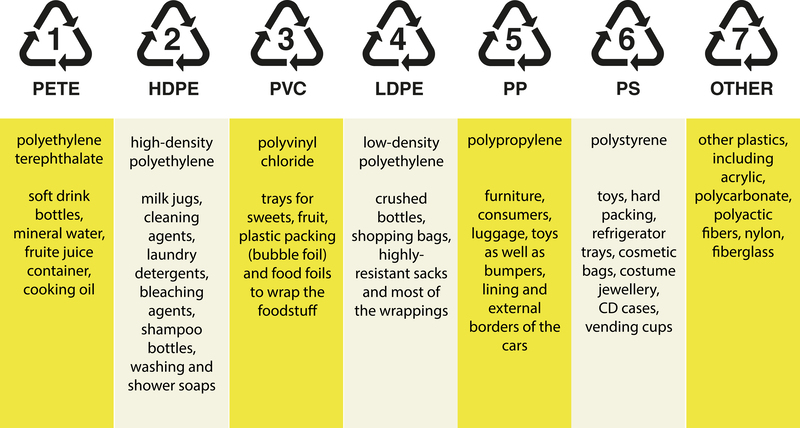Smart Practices for Reducing Household Waste
In today's environmentally conscious world, reducing household waste has become a top priority for families eager to contribute to sustainability. By implementing smart practices at home, individuals can minimize their ecological footprint, save money, and set a positive example for future generations. This comprehensive guide covers innovative strategies, actionable tips, and eco-friendly habits that make reducing home waste both achievable and rewarding.
Why Reducing Household Waste Matters
Household waste is a major contributor to global landfill issues and environmental degradation. Every year, tons of rubbish--ranging from food scraps to plastic packaging--end up in landfills, where they take decades or even centuries to decompose. This not only pollutes the earth and water sources but also releases harmful greenhouse gases. Adopting waste reduction practices can:
- Conserve natural resources
- Lower carbon footprint
- Save money by purchasing and using less
- Encourage a cleaner, healthier living environment

Master The Three R's: Reduce, Reuse, Recycle
The core principles of smart waste management focus on the Three R's:
- Reduce: Limit what you bring into your home, cutting down on waste from the start
- Reuse: Find new ways to use items rather than disposing of them
- Recycle: Properly sorting allowable materials for recycling to prevent landfill build-up
Reducing at the Source
The best way to tackle household waste is to prevent it from being generated in the first place. Here are essential methods to reduce waste at home:
- Opt for products with minimal or no packaging
- Buy in bulk to avoid single-use containers
- Use digital versions of bills, statements, and subscriptions
- Pack lunches in reusable containers
- Plan meals ahead to avoid overbuying and food spoilage
Embracing Reusables
Switching to reusable items can drastically decrease the volume of household trash. Consider these smart alternatives:
- Use cloth shopping bags instead of plastic ones
- Switch to refillable water bottles and coffee cups
- Invest in cotton napkins and dishcloths
- Choose glass or stainless steel for food storage
Proactive Recycling
Effective recycling practices at home ensure materials are properly processed and kept out of landfills. Follow these tips:
- Familiarize yourself with local recycling guidelines
- Rinse and clean recyclables before placing them in bins
- Separate paper, plastic, metal, and glass accordingly
- Take electronics, batteries, and hazardous materials to specialist centers
Composting: Nature's Recycling System
Food scraps and yard waste are significant household waste contributors. Composting transforms these items into nutrient-rich soil, perfect for gardens and plants. Learn how to compost at home and significantly reduce organic waste:
- Set up a compost bin or pile in your yard or use a countertop composter for small spaces
- Add vegetable peels, fruit skins, coffee grounds, tea bags, and eggshells
- Avoid adding animal products, diseased plants, and synthetic materials
- Turn the compost regularly to aid decomposition
- Use finished compost to fertilize your garden and potted plants
Reducing Food Waste: Tips and Tricks
According to the Food and Agriculture Organization (FAO), roughly one-third of all food produced is wasted. Here are smart practices for minimizing food waste:
- Make detailed shopping lists and stick to them
- Store perishables properly to enhance their lifespan
- Repurpose leftovers into new meals
- Freeze food before it spoils
- Use imperfect produce in soups and smoothies
Smart Kitchen Practices for Waste Minimization
The kitchen is often the heart of home waste production. Transform your kitchen into a zero-waste zone by adopting these waste reduction tips:
- Choose reusable alternatives: Beeswax wraps, silicone lids, and glass jars
- Purchase goods from bulk bins with your own containers
- Avoid disposable plates, cups, and cutlery
- Compost vegetable scraps for use in your garden
- Educate your family about food expiration dates--often, "best by" simply means optimal quality, not food safety
Bathroom and Cleaning Waste Reduction
Household bathrooms and cleaning routines can generate significant waste through disposable products and excessive packaging. To reduce bathroom waste:
- Switch to bar soap or refillable pump dispensers
- Opt for washable cloths instead of paper towels
- Use reusable razors or safety razors
- Select toilet paper made from recycled materials
- Buy toiletries in bulk or from stores with refill stations
Sustainable Shopping Habits
The power of your wallet can influence the amount of waste entering your home. Smart shopping is a fundamental part of minimizing household waste. Consider:
- Choosing products with less or compostable packaging
- Purchasing durable items over disposables
- Supporting local produce and bulk stores
- Exploring second-hand shops for clothes and household items
- Rejecting freebies or samples you don't need
Clothing and Textile Waste Smart Management
Fast fashion is a major source of waste. Extend the life of your wardrobe while reducing textile waste with these strategies:
- Buy high-quality clothes that last
- Repair or upcycle old garments
- Host clothing swaps with friends and family
- Donate unwanted items to charity shops
- Use worn textiles as cleaning rags or crafts
Electronics and E-Waste: Safe Disposal
E-waste contains toxins that are hazardous to the environment. For proper e-waste disposal:
- Take retired electronics to approved recycling centers
- Donate usable devices to schools or community organizations
- Buy products from companies with e-waste recycling programs
- Repair electronics instead of replacing them whenever possible
Waste-Free Events and Gifting
Celebrations and holidays are notorious for creating excess waste. Plan events with sustainability in mind:
- Use reusable or compostable tableware
- Decorate with natural or recycled materials
- Opt for experience gifts like tickets or memberships
- Wrap presents in fabric, newspaper, or reusable gift bags
- Share leftover food with guests or donate to local shelters
Smart Storage and Organization
Keeping your home organized helps you track what you own and minimize unnecessary purchases. For better home waste management:
- Label storage containers to avoid confusion and waste
- Use clear jars for pantry staples to monitor supply levels
- Sort and donate unused items every season
- Organize closets to see and use what you already have
Community Initiatives and Sharing
Joining neighborhood or city-wide sustainability programs boosts waste reduction:
- Participate in community composting or recycling drives
- Share tools and equipment with neighbors through lending libraries
- Support local repair cafes or swap meets
- Engage in discussions on zero-waste initiatives
Teaching Children the Value of Waste Reduction
Instilling eco-friendly habits in children ensures that smart waste reduction carries on to future generations.
- Make recycling fun with colorful bins and labels
- Teach the importance of charity and donating toys and clothes
- Encourage creative reuse through crafts and DIY projects
- Model 'take what you need' behavior during meals
Utilize Technology for Less Waste
Leveraging technology is one of the most innovative practices for cutting household waste. Take advantage of:
- Apps that help plan meals and track shopping lists
- Digital receipts instead of printed ones
- Subscription services that deliver refillable or bulk goods
- Community platforms for swapping, selling, or giving away unused items

Set a Personal Waste Reduction Goal
Start by measuring your household waste for a week. Set a realistic target--like reducing landfill waste by 20% in three months. Adjust your habits based on progress and keep the whole family involved for lasting results. Celebrate milestones to keep the momentum going.
Conclusion: Building a Sustainable Future
Reducing household waste is a vital step towards a sustainable lifestyle that benefits both the planet and your personal well-being. Start small and gradually integrate these smart waste reduction practices into your daily routine. By making conscious choices, rethinking consumption, and prioritizing eco-friendly solutions, every household can significantly lower its environmental impact. Remember, every little effort counts--so begin your journey towards a waste-free home today!
Bonus: Quick Checklist for Reducing Home Waste
- Buy only what you need and will use
- Reuse and repurpose before discarding
- Recycle responsibly
- Compost organic waste
- Support sustainable brands and local producers
- Educate and involve the whole family
Start implementing these smart practices for reducing household waste and watch as your home becomes greener, cleaner, and more cost-effective. Together, we can make a monumental difference.



